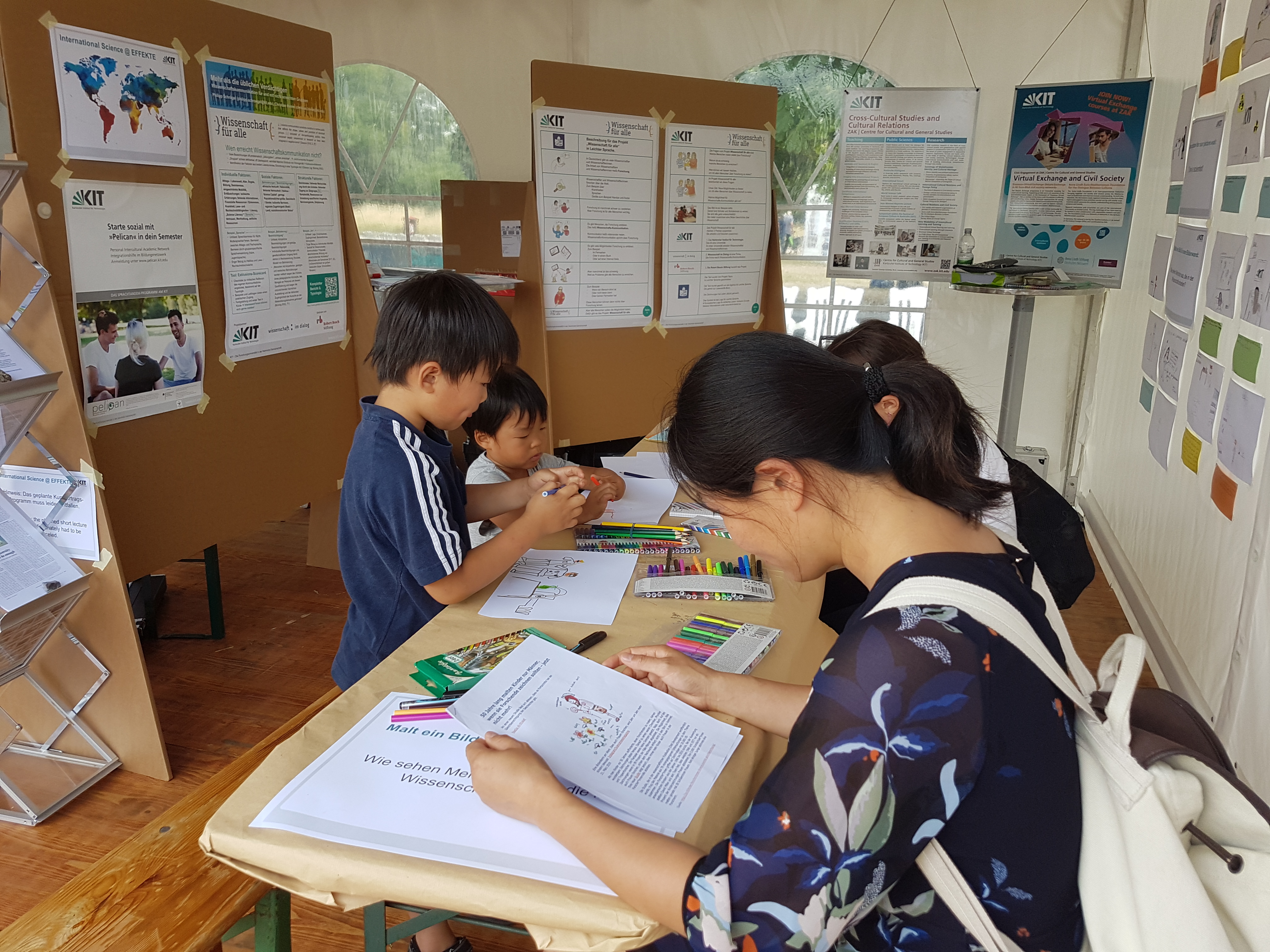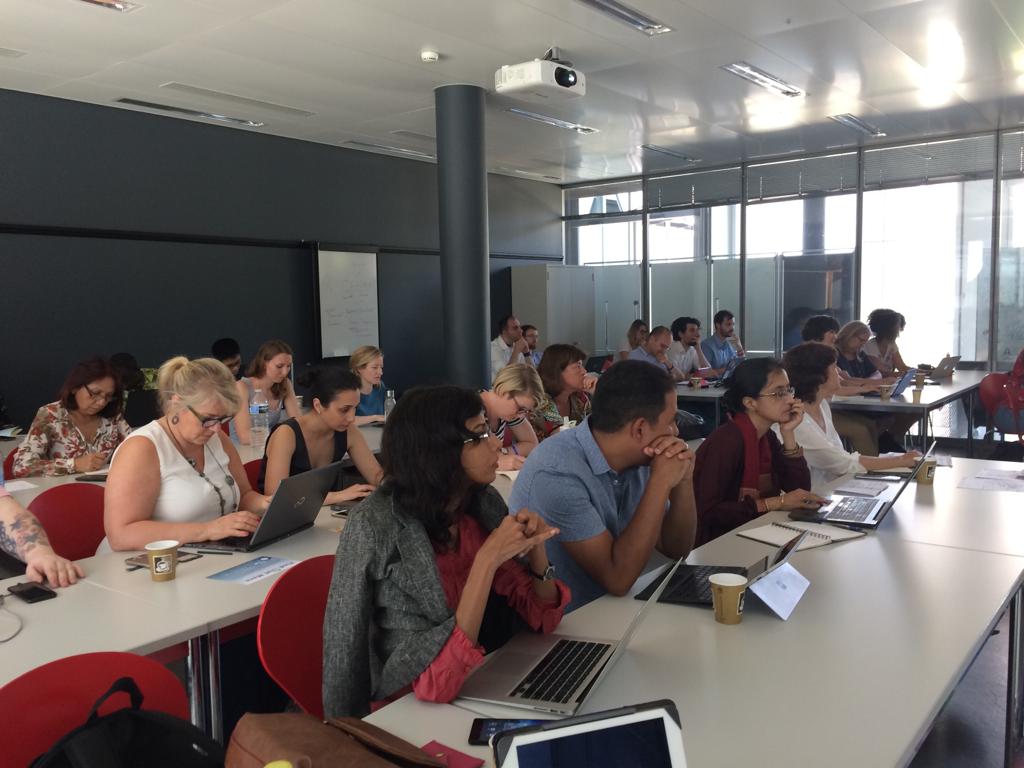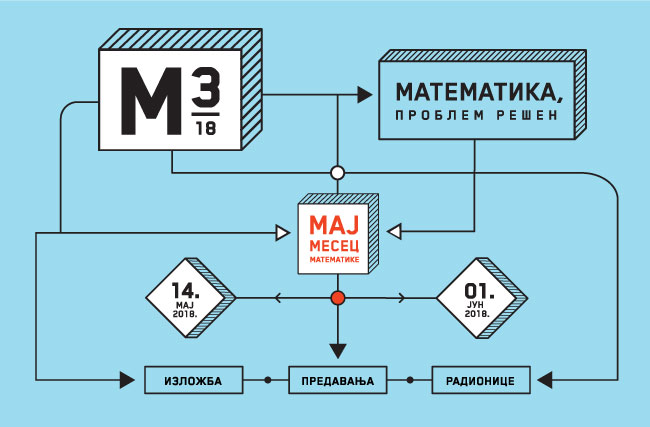NUCLEUS had its annual project conference in October, bringing together over 40 participants from 14 countries to reflect on what we’ve learned in the first year, and what path we will follow in the second. The meeting was coordinated by project partner Université de Lyon, in the beautiful city of Lyon, France, where the Rhone and Saone rivers converge – a fitting location for a project focused on bringing research and society closer together.

Although universities are increasingly communicating with their stakeholders, these efforts don’t always foster two-way conversations or have an influence on the research the university supports. NUCLEUS is developing policies to help universities become more responsive to society’s needs, and has spent the last twelve months listening to professionals from the fields of government, journalism, public engagement, business, and academia. Through field trips and interviews, we’ve learned about barriers that can prevent these communities from engaging with research, as well as potential solutions.
The opening of the conference focused on sharing these findings, and developing a common understanding of the political context. Keynote speaker Philippe Galiay, Head of the “Mainstreaming Responsible Research and Innovation” Sector in the European Commission’s policymaking body for Research and Innovation, provided insight into how the next European funding programme will be developed, and where NUCLEUS can contribute recommendations.
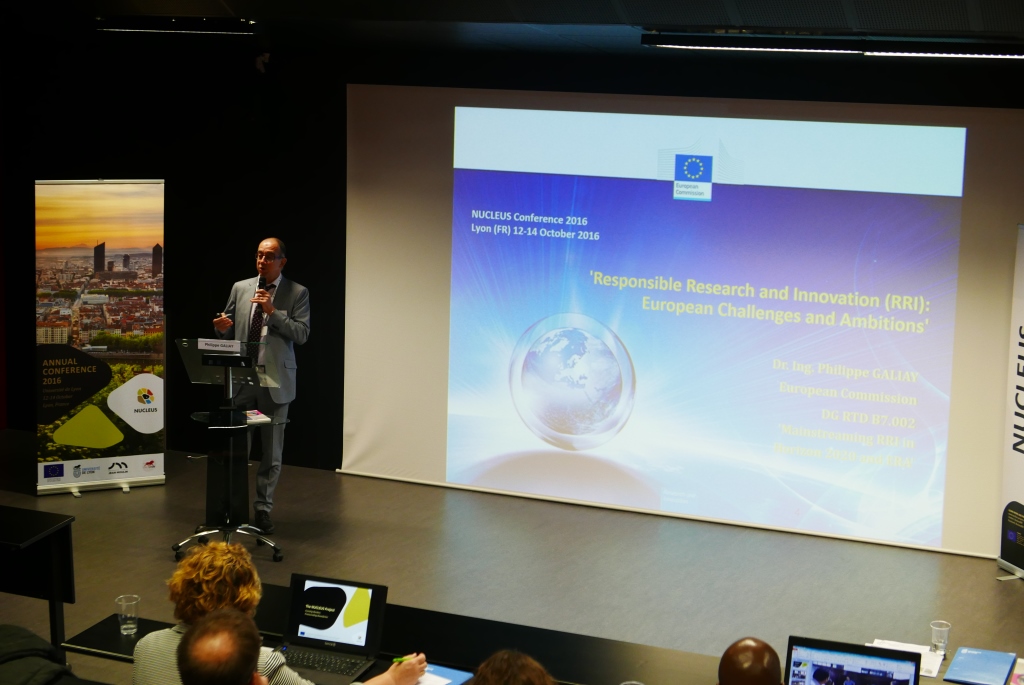
The field trip findings were presented in a fast-paced PechaKucha-style session (20 images per presentation, shown for 20 seconds each), by Kenneth Skeldon (University of Aberdeen), Caitriona Mordan (Dublin City University), Sarah Anderson (Beltane Public Engagement Network), Heather Rea (Beltane Public Engagement Network), Shadrack Mkansi (South African Agency For Science and Technology Advancement), Jon Rea (Nottingham City Council) and Karen Moss (Nottingham Trent University). Ellen Böger (University of Bielefeld) and Anne Dijkstra (University of Twente), also provided an update on the ongoing study of how university leadership perceives Responsible Research and Innovation (RRI) in Europe, South Africa and China.
What we’ve learned this year has been exciting and interesting. However, the complexity of the information presents a considerable challenge: how will we develop these into practical results?
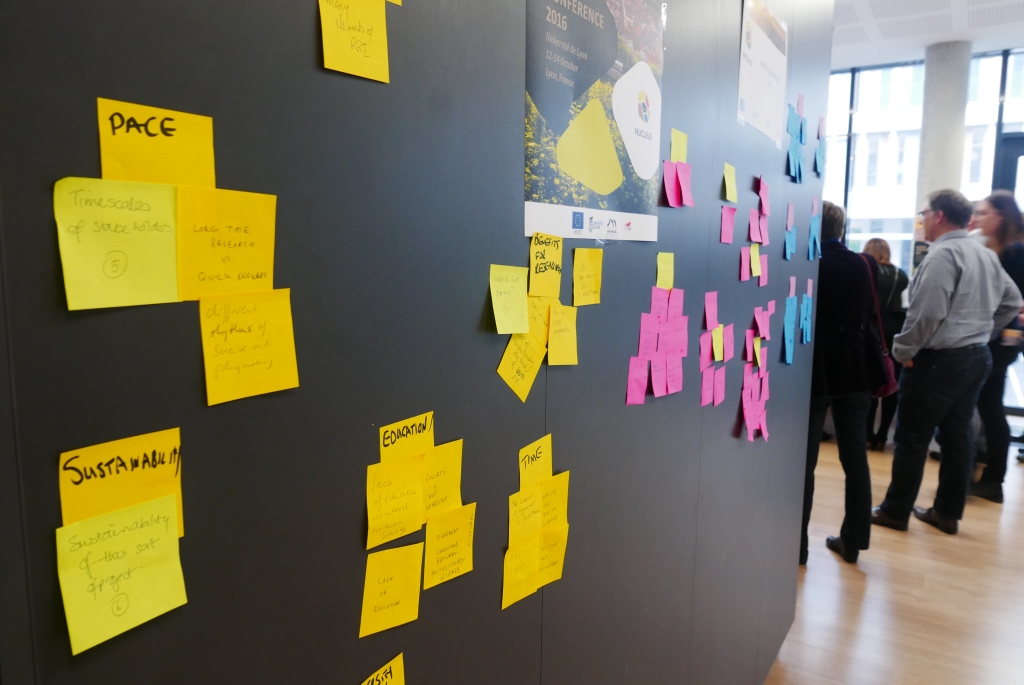
The conference was an ideal environment in which to begin the task, drawing on the participants’ reflections to uncover common themes across the field trip findings in a session led by Kenneth Skeldon and Lucy Leiper (both of University of Aberdeen). Maarten van der Sanden and Steven Flipse (both of Delft University of Technology) offered hands-on experience in social design thinking, a tool that is used to identify creative solutions to complex problems. While not easy work, the work set the tone for a year that will require close collaboration, and problem-solving that draws on the many perspectives of the project partners.
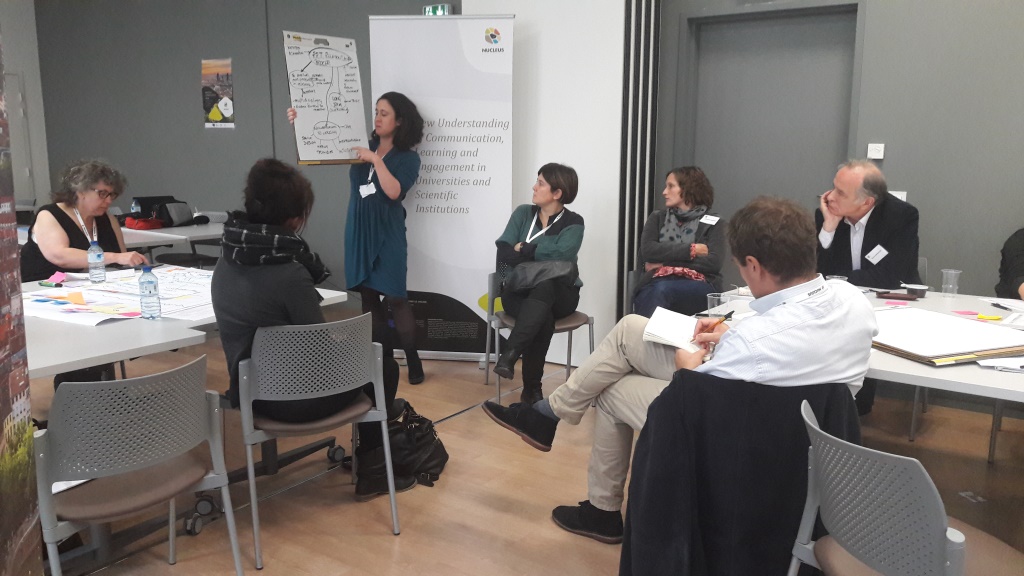
The final day of the conference refocused participants on the motivation for the project and its goals. Keynote speaker Jack Stilgoe, Senior Lecturer in Science and Technology Studies at University College London, argued powerfully against fixating on academic excellence at the expense of serving society (more of his reasoning is available online in this essay). Daniel Garcia Jiminez and Daan Schuurbiers, representing the RRI Tools and NanoDiode projects respectively, also contributed valuable insights for NUCLEUS, based on their resources developed and lessons learned as fellow RRI projects. In a final session, Aleksandra Drecun, President of Intersection, Centre for Research and Innovation, moderated a panel discussion with Galiay, Stilgoe, Garcia Jiminez and Schuurbiers. The group reflected together on the potential challenges of bringing RRI into institutions – and the rewards.
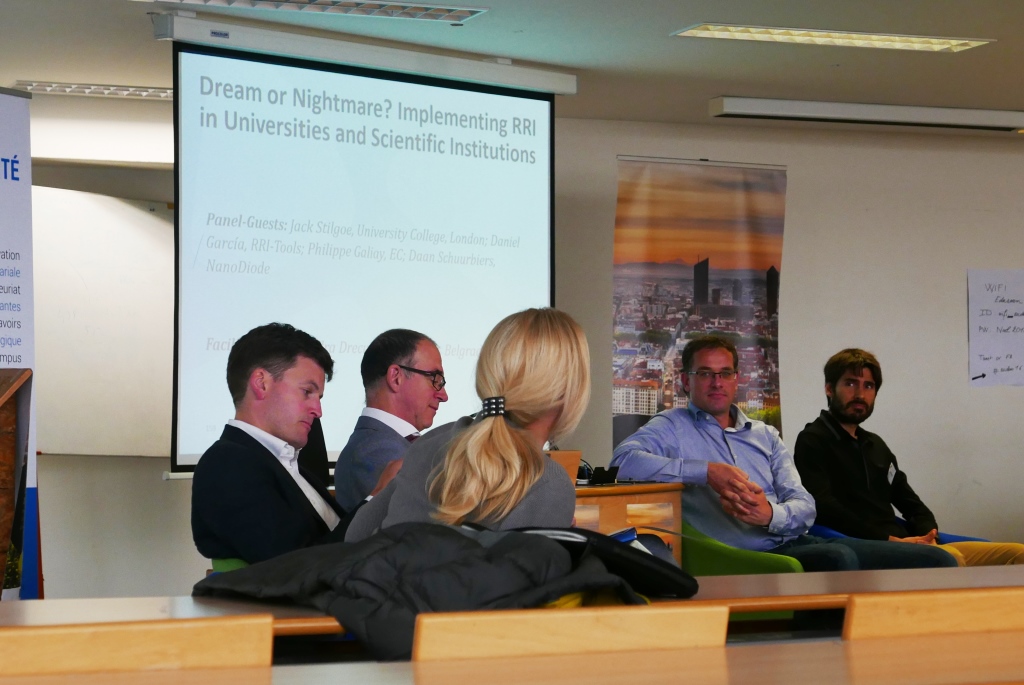
With the conference over, the next steps for the project will be to define the working groups that will develop new policies to implement in test bed locations. The first meeting will be held in November, and lay the foundation for a shared vision and set of goals. Thinking again of the rivers of Lyon offers a beautiful analogy for the culture change that NUCLEUS aims to create in universities: the confluence district where the rivers meet served as an industrial port throughout most of the 20th century, but has been renewed over the last decade. Originally a transportation hub, it is now an area providing strong cultural and economic services, closely linked to residential areas as well. Exciting, modern, and meeting the wider needs of its community: an ideal model for a project focused on transforming the role of universities in society.
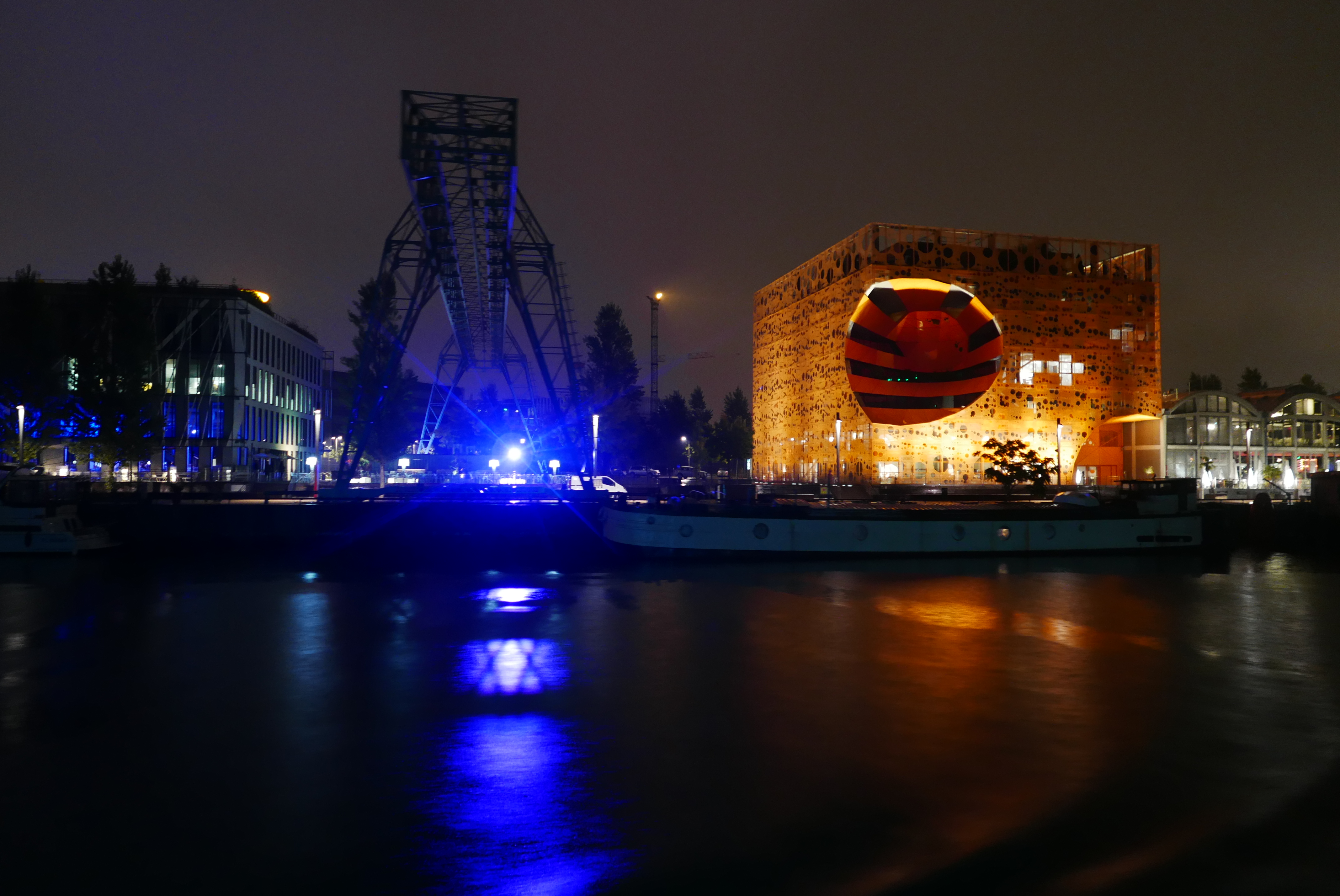
Thanks to Florence Belaen, Elodie Suttling and Armelle Bozok (all of Université de Lyon) for their warm hospitality and professional coordination; Philippe Galiay, Jack Stilgoe, Daniel Garcia Jiminez and Daan Schuurbiers for your active contributions throughout the conference; and Jon Rea (Nottingham City Council) for great facilitation. Looking forward already to #nucleus17 in Hannover!
